INDIAN ARMED FORCES CHIEFS ON OUR RELENTLESS AND FOCUSED PUBLISHING EFFORTS

The insightful articles, inspiring narrations and analytical perspectives presented by the Editorial Team, establish an alluring connect with the reader. My compliments and best wishes to SP Guide Publications.

"Over the past 60 years, the growth of SP Guide Publications has mirrored the rising stature of Indian Navy. Its well-researched and informative magazines on Defence and Aerospace sector have served to shape an educated opinion of our military personnel, policy makers and the public alike. I wish SP's Publication team continued success, fair winds and following seas in all future endeavour!"

Since, its inception in 1964, SP Guide Publications has consistently demonstrated commitment to high-quality journalism in the aerospace and defence sectors, earning a well-deserved reputation as Asia's largest media house in this domain. I wish SP Guide Publications continued success in its pursuit of excellence.
- MoD initiates comprehensive review of Defence Acquisition Procedure 2020, pushes for defence reforms
- G7: The Swansong
- Kalinga Connect: South Asia to Polynesia
- Advanced MRSAM for India for a greater firepower
- Must Credit DRDO for Operation Sindoor, now what is next for defence R&D?
- Operation Sindoor | Day 2 DGMOs Briefing
- Operation Sindoor: Resolute yet Restrained
Middle East Up in Flames
The incursion of Hamas fighters into Israel has left the Middle East in a state of flux despite the recent diplomatic alliances redefining the region's landscape
 |
The Author is former Chief of Staff of a frontline Corps in the North East and a former helicopter pilot. He earlier headed the China & neighbourhood desk at the Defence Intelligence Agency. He retired in July 2020 and held the appointment of Addl DG Information Systems at Army HQ. |
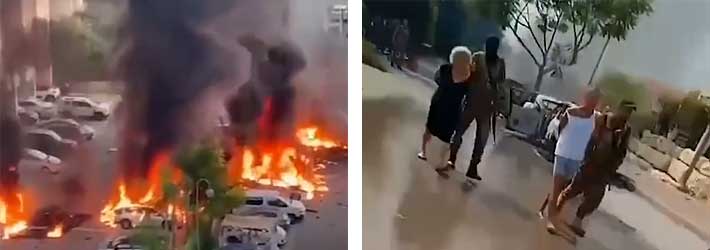
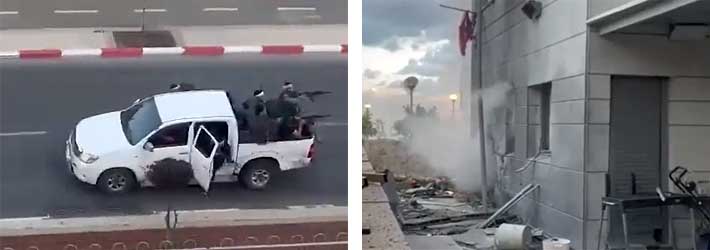
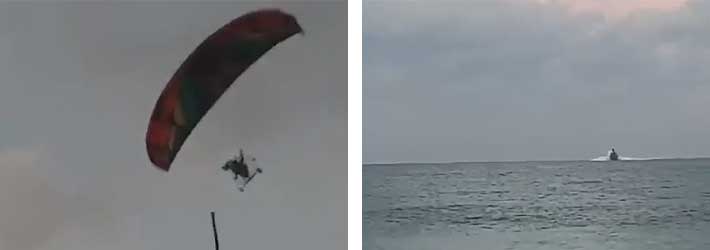
There were good signs of change taking place in the otherwise fractured and volatile region of Middle East in recent months.
Reconciliation in the Gulf
There was reproachment between long-time rivals Saudi Arabia and Iran brokered by China in March this year. Bothcountries decided to patch up a seven-year split by reviving a security cooperation pact, reopening embassies in each other's countries within two months, and resuming trade, investment and cultural accords though the rivalry between the two Persian Gulf nations is deeply rooted in disagreements about religion and politics. Each sees itself not just as a regional power, but also as the leader for the world's 1.9 billion Muslims. The new diplomatic engagement was bringing together Saudi Arabia, a close partner of the US with Iran, a longtime foe that Washington and its allies consider a security threat and a source of global instability.
Recent efforts to mend fences between Israel and Saudi Arabia, backed by the US, signalled a potential realignment in the region's geopolitical dynamics
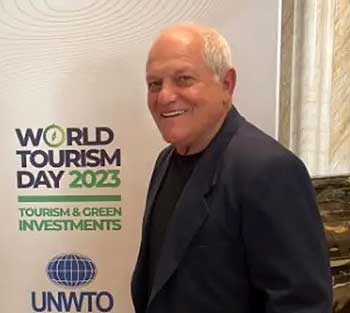
In another surprise development, after twelve years of shunning Syrian President Bashar al-Assad, many Arab countries decided to put the past behind them and normalise relations with his regime. The Arab League underscored this shift by restoring Damascus's membership in the organisation, which had been suspended in 2011 following Assad's brutal crackdown on anti-regime protesters. The rapprochement marked a major diplomatic success for Assad, as well as for his supporters Iran and Russia.
Even more surprising was the fact that Israel and Saudi Arabia were working to mend fences. Barely two weeks back, on September 26, Israel's Tourism Minister Haim Katz had arrived in the Kingdom as part of the United Nations World Tourism Organisation, making him the first-ever Israeli minister to do so. US led the effort possibly hoping to match the Chinese success in normalising Iran-Saudi relations with a long-shot potential to re-model it as Israel–Saudi axis against a common strategic goal of containment of Iranian influence in this region and beyond, as Tehran gets more intertwined with Moscow and Beijing. In this backdrop the surprise but bold incursion by Hamas on Saturday morning comes as a big shocker.
Hamas' bold and unprecedented attack on Israel
On the morning of October 7, on the Jewish holiday of Simchat Torah, the Palestinian militant group carried out a massive attack on Israel that was nearly unprecedented in its scale and scope. Hamas fired some 5,000 rockets from Gaza overwhelming the supposedly impenetrable Israeli air defence system 'Iron Dome' and infiltrated its operatives across the border, breaching the fence as well as by using paragliders and boats. At least 700 Israelis have been killed, with over 2,000 more wounded. Hamas has also reportedly taken dozens of Israelis hostage, releasing videos to support its claims. Hamas claims it had launched an "all-out battle" of "honour, resistance and dignity" to defend Al-Aqsa Mosque in Jerusalem, following a series of attacks and raids on Palestinian worshippers at the holy site.
Hamas's bold incursion with a massive attack on Israel, involving 5,000 rockets and breaches of defence systems, brings the region to a precipice of conflict
The response from Israel is swift, forceful and even more brutal as expected, having been taken by a hugely embarrassing and costly surprise. Caught off-guard, Israel's hawkish Prime Minister Benjamin Netanyahu has declared war, launched Operation Iron Swords, pumped punishing airstrikes in Gaza and called up reservists.
Complex Dynamics of Palestinian Leadership
Hamas has governed Gaza since seizing power there in 2007 and it has always wrestled with the inherent tension between governing the area and maintaining its bona fides as the leader of the anti-Israel resistance camp among Palestinians. For much of the last 16 years, Hamas's leaders have tried to appeal to Palestinians by showing that they, not the Palestinian Authority (PA), can govern better. Yet Hamas styles itself as a resistance organisation and needs to be one for political survival and counter potential rivals such as Palestinian Islamic Jihad much in the same way that Iran-backed Hezbollah does in Lebanon. It therefore comes as no surprise that Hezbollah has opened another front by firing mortars on Israeli posts from South Lebanon in the Golan Heights.
Global reactions range from calls for restraint to condemnations to open support for Palestine, highlights the widening divide in alliances with potentially far-reaching consequences
The PA is caught in a political trap, wanting to see Hamas fail but unable to openly cheer for Israel. The unchecked growth of Israeli settlements in the West Bank, pogroms by extreme religious and fanatical elements amongst Israeli settlers, and the open contempt many members of Netanyahu's coalition have for Palestinians all increased the PA's humiliation. Hamas has used this moment to strike and prove a point though it is fully aware of its consequences on ordinary Palestinians in Gaza. The PA will secretly hope that Israel will crush Hamas this time forever.
Netanyahu's Moment of Truth
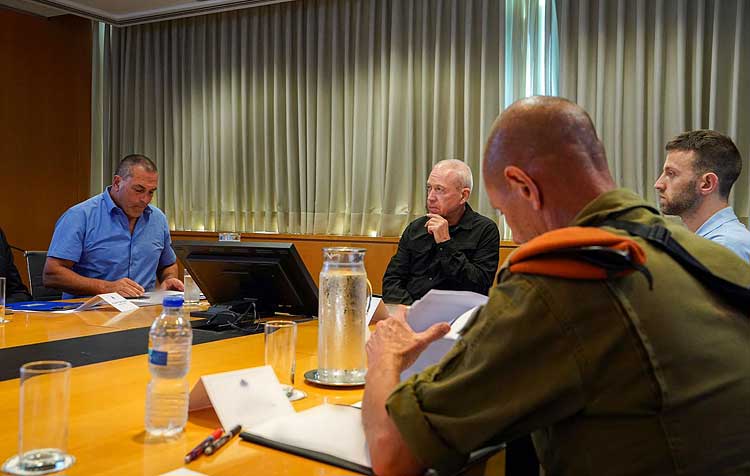
It is perhaps a 'Golda Meir' moment for Netanyahu. Almost 50 years back to this day, on October 6, 1973, Egypt had launched a swift offensive breaching the Bar Lev Line, a 150km sand embankment that stretched from the Gulf of Suez to the Mediterranean Sea. Gloda Meir was the Prime Minister of Israel at that time. Her refusal to engage Egyptian President Anwar Sadat in diplomatic negotiations in the leadup to the war and her failure to prepare the country for war despite ample warnings led to the greatest disaster in Israeli history. Nearly 3,000 Israeli soldiers died in the 19-days Yom Kippur War, over 10,000 were injured and hundreds were taken captive. Prime Minister Netanyahu finds himself precisely in that situation.
Geostrategic Fault Lines Deepen
The world has reacted along expected lines. While Saudi Arabia called for an immediate end to the violence and Egypt called for "maximum restraint", Iraq, Iran and Kuwait were among nations to blame decades of Israeli oppression, with Iranian state television showing parliamentarians rising from their seats to chant "Death to Israel". Long-term ally of the US, Saudi Arabia has been veering away in recent times, aligning and coordinating more closely with Russia especially in cutting oil production. In Yemen, Houthi supporters rallied to show support for Palestine, with images emerging of Israeli and US flags being burned. Russia and China have voiced similar reactions given Russia's close relationship with Iran and their ongoing conflict with the west in Ukraine and the Indo-Pacific. The US and other Western leaders have heavily condemned the "terrorist" attacks by Hamas pledging to support Israel in its fight to defeat terror. Prime Minister Modi has expressed solidarity with Israel terming the Hamas action as a "terrorist attack".
The global geostrategic fault lines are getting sharper as new war zones light up. Sadly, the world may be bracing for a long period of conflict with much wider ramifications when it should have been focussing on climate change, poverty and migration.





